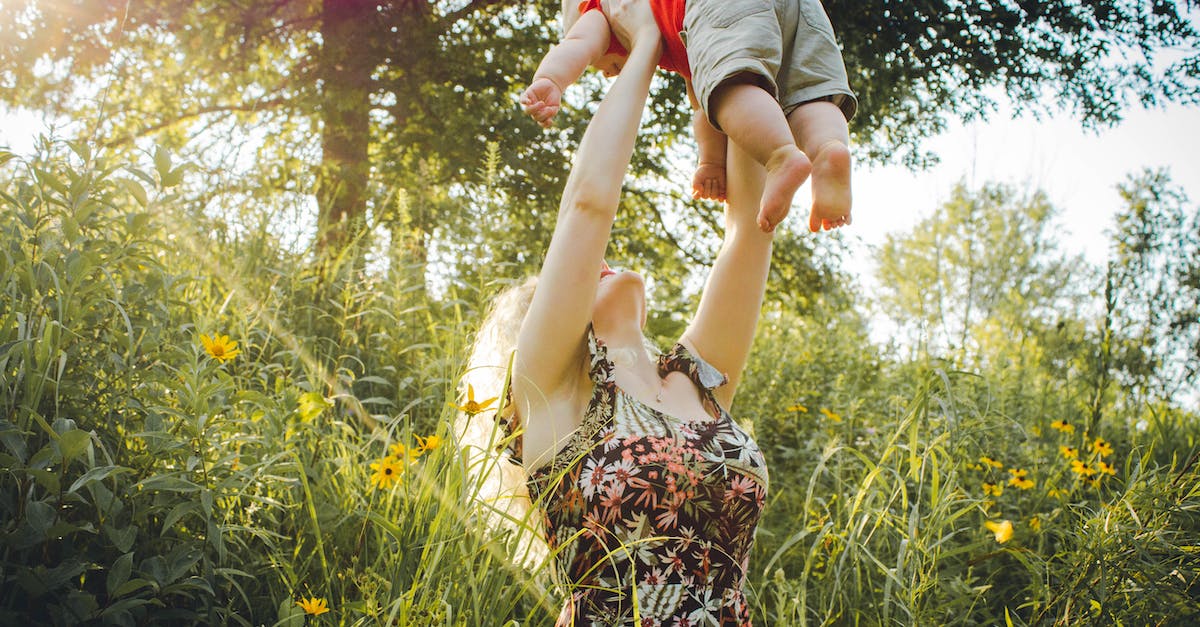Ah, teaching respect! As a mom, there’s nothing more important than giving our children the tools to live happy, successful, and respectful lives. But how do we do it? Well, it’s not an easy task, but it’s certainly possible to teach respect to our children if we approach it with the right attitude.
It’s all about setting a good example. If we want to instill respect in our children, we need to show them respect ourselves. That means listening to them, valuing their opinions, giving them space to make their own mistakes, and showing them that we believe in them.
Humor is also an important part of teaching respect. It can be a great way to diffuse tension and create a more relaxed atmosphere. Showing our children that we can laugh at ourselves and have a good time together can help them to understand that respect isn’t always serious and serious moments aren’t always respectful.
Finally, consistency is key. We need to be consistent in our expectations and consistent in our reactions. If our children know that we’re going to react the same way every time they do something wrong, they’ll be more likely to do the right thing.
So, there you have it – tips for teaching respect to our children. It’s not always easy, but it’s certainly possible when we approach it with the right attitude.
Defining Respect

You know that feeling when you’re out at a restaurant, and the kid at the table next to you is running around, shouting, and making a bit of a scene? That’s not respect. Respect is a bit more complicated than that, and it’s something that should be taught to children.
So, what is respect? Respect is a feeling of admiration and adoration for someone or something. It’s recognizing the worth and value of someone or something and behaving accordingly. Respect means treating people with kindness and understanding, and understanding that everyone is different.
A great way to introduce respect to children is to give them examples of how to show respect. Talk to them about how we should all respect each other’s differences and how we should always be polite. Explain to them why it’s important to listen to other people, even if they don’t agree with them.
You can also use stories and role-play to help illustrate respect. Have your child pretend to be in a situation where they must show respect and then talk about how they should handle it. Give them examples of how they can be respectful, and talk to them about the consequences of not being respectful.
Finally, demonstrate respect for yourself. Children learn by example, so show them how to be respectful in all situations. Talk to them about how we should always treat others the way we want to be treated.
Respect is an important quality for children to learn, and it starts with you. Set a good example and use activities and discussions to help your child understand what respect means and how to demonstrate it.
Building Self-Respect

You want your child to show respect to others, but first and foremost, they must learn to respect themselves. Teaching your child to have a healthy level of self-respect is a key factor in their overall confidence and character. Here are some tips to help you get your child to build their self-respect.
- Let your child make decisions. It’s important to give your child a sense of control over their life. Let them make decisions and give them the opportunity to explore different options. This will make them feel empowered and capable and help them develop a greater sense of self-respect.
- Praise your child. If your child does something positive, take the time to show them that you appreciate their effort. Let them know that you are proud of them and their accomplishments. This will help them to gain confidence and self-respect.
- Provide opportunities for success. Show your child that you believe in them by giving them the opportunity to succeed. Let them try new activities, such as sports or music, and encourage them to do their best. This will help them build their self-respect.
- Model respect. Show your child that you respect yourself and others by the way, you act and speak. Let them see that you are a person of integrity and that you are comfortable in your own skin. This will help your child learn to respect themselves.
- Encourage your child. Let your child know that you believe in them and their abilities. Encourage them to reach for the stars and strive to achieve their goals. This will help them to develop a strong sense of self-respect.
By following these tips, you can help your child to gain a healthy level of self-respect. Show your child that you believe in them and watch as they grow in confidence and character.
Encouraging Respect for Others

Respecting others is an important lesson to teach your children. As parents, it’s our responsibility to encourage our kids to respect others and treat them with kindness. Here are three tips to help your children learn the importance of respecting others:
- Model Respectful Behavior – If you want your kids to respect others, you must first show them how it’s done. Model respectful behavior by speaking to your children in a polite and respectful manner. When you’re in public, use respectful language and demonstrate good manners. Your kids will take notice and learn from your example.
- Encourage Empathy – Empathy is the ability to understand and share the feelings of another person. Encourage your children to try to put themselves in the shoes of others and think about how their words and actions might affect others. This can be a great way to help them learn to respect the feelings and opinions of others.
- Teach Them to Listen – Listening is an important skill that kids need to learn if they want to show respect for others. Teach your children to listen to and understand the opinions of others before they offer their own. This will help them learn to be more understanding and respectful of different views and opinions.
Respecting others is an important life lesson that all children should learn. By following these tips, you can help your children understand the importance of respecting others and treat them with kindness.
Setting Boundaries

You’re a parent, and you want to make sure your children understand basic respect. But how? It’s an age-old question, and one that has been pondered for many years. Teaching respect to children is a lifelong process, but the key is to start early and to be consistent. One of the most important steps in teaching respect is to set boundaries.
When it comes to setting boundaries, there are a few things to keep in mind. First, be clear and consistent. Children need to know what the expectations are, and when they don’t follow them, there should be consequences. It’s important to also be consistent. If you are saying one thing one day, and something else the next, it can be confusing for children.
Second, explain why the boundaries are in place. It’s not enough to just tell them what the boundaries are – they need to understand why. Explain that boundaries are there to keep them safe, and to help them grow into responsible adults.
Third, stick to your word. It’s important to follow through on consequences when boundaries are not respected. This shows your children that you mean what you say. It also shows them that you are serious about teaching them respect.
Finally, be patient. It takes time for children to understand and learn to respect boundaries. Don’t expect miracles overnight. It’s a process, and one that will take time and patience.
Setting boundaries is a crucial part of teaching respect to children. Be clear, consistent, and explain why the boundaries are in place. Stick to your word, and be patient. With a little bit of effort, your children will learn to respect boundaries, and in turn, respect themselves and others.
Modeling Respectful Behavior

You know what they say, “Actions speak louder than words!” You’ve probably heard it a million times, but it’s true – especially when it comes to teaching respect to children.
Modeling respectful behavior is perhaps the most important thing you can do to teach respect to your children. After all, children learn respect by watching and imitating what their parents do. So, if you want your children to learn respect, you need to show them how it’s done.
Here are some tips for modeling respectful behavior:
- Be polite. Say “Please” and “Thank you,” and use your manners. When you do this, your children learn that politeness is important.
- Listen. When your children talk, really listen to them. Make eye contact, nod along, and let them know that you are interested in what they are saying.
- Respect yourself. Children learn a lot by watching their parents, and that includes respecting themselves. So, make sure that you are taking care of yourself and setting a good example.
- Respect others. Treat the people around you with kindness and respect. Your children are watching, and they will pick up on how you interact with others.
- Apologize. It’s important to show your children that it’s okay to make mistakes – and that when you make a mistake, it’s important to apologize.
By modeling respectful behavior, you will be teaching your children an important lesson: respect is important. So, take some time to show your children what respect looks like – you’ll be glad you did!
Teaching Respect Through Praise and Rewards

Are you looking for ways to teach respect to your children? Praise and rewards are an effective tool for teaching respect. Here are 6 tips to help you get started!
- Affirm positive behavior. Instead of pointing out negative behavior or reprimanding your child, focus on what they did right. Make sure to be specific and use words that encourage your child to keep making good choices.
- Provide incentives. Rewards such as extra screen time treat, or a special activity can be used to motivate children to do their best and act respectfully.
- Model respect. Children learn by example, so it’s important to demonstrate respect in your own behavior. This means treating people with kindness, showing patience, and using polite language.
- Show appreciation. Let your child know that you appreciate their efforts. A simple “thank you” or “good job” can go a long way in teaching respect.
- Have them help out. Assign simple tasks that help around the house, such as setting the table or taking out the trash. This teaches your child responsibility and shows that their efforts are important.
- Listen and talk. Respectful communication is key, so make sure to take the time to listen to your child and talk with them. Ask questions, show interest in their opinions, and be willing to compromise.
Addressing Disrespectful Behavior

As parents, it’s our responsibility to teach our children respect and help them understand that disrespectful behavior isn’t okay. Here are seven tips for addressing disrespectful behavior and teaching respect to your children:
- Model Respectful Behavior. If you want your children to be respectful, you need to model respectful behavior yourself. Show your children that you respect yourself, other people, and your surroundings.
- Listen and Validate Feelings. When your child is being disrespectful, it’s important to listen to their feelings and validate them. Let them know their feelings are heard and respected even if you don’t agree with them.
- Set Clear Boundaries. Establish clear boundaries and expectations for behavior and explain why they are important. Make sure your children understand that disrespectful behavior is not okay and will not be tolerated.
- Use Positive Reinforcement. Reward your children for respectful behavior with positive reinforcement. Praise them for being kind, courteous, and respectful.
- Avoid Power Struggles. When dealing with disrespectful behavior, it’s important to avoid power struggles. Set clear expectations and consequences and stick to them.
- Don’t Take It Personally. When your child is being disrespectful, try not to take it personally. Remind yourself that your child is likely acting out of frustration or anger and not purposely trying to hurt you.
- Give Consequences. Lastly, be sure to give consequences for disrespectful behavior. Show your children that there are consequences for their actions and that disrespectful behavior will not be tolerated.
It’s not always easy to teach respect to children, but with patience and consistency, you can help your children learn to be respectful and kind.
Role-Playing Respectful Interactions

Role-playing respectful interactions is a great way to do just that! Here are some tips to get you started:
- Model respectful interactions for your child. Show them how to be respectful and use polite language.
- Give your child the opportunity to practice what they have learned by role-playing with you or another adult.
- Ask your child questions about the situation and have them explain how they would handle it in a respectful manner.
- Encourage your child to use appropriate language when talking to other people.
- Let your child practice their new skills by role-playing with a friend or sibling.
- Explain the importance of respect and why it is important to be respectful in all situations.
- Ask your child to identify situations in which respect is important.
- Celebrate your child’s successes in role-playing respectful interactions. Give them verbal praise and rewards when they demonstrate respectful behavior.
Remember, role-playing respectful interactions is a great way to teach your child respect. They will learn how to be respectful in all situations and how to use appropriate language when talking to other people. So grab your kids and get role-playing!
Conclusion
As parents, we have the responsibility to teach our children respect. Teaching respect can be an ongoing process and will require patience, time, and effort. But to the parent, the rewards are priceless. When children learn respect, they become more compassionate and aware of the feelings of others. They understand the importance of treating others with kindness, dignity, and fairness.
We can show our children that respect is a two-way street. When they show respect to us, they will also learn to show respect to others. When they show respect to us, they will also learn to show respect to themselves.
We can also teach our children respect through example. When we treat others with respect, they will model our behavior. Our children can learn the value of respect by watching us interact with people in a respectful and thoughtful manner.
Respect is an important value that all of us should strive for. By teaching our children respect, we are helping them to become better people and ultimately, better citizens of the world. So, let’s take the time to teach our children respect and help them to become better individuals.
References:
- https://www.healthychildren.org/English/family-life/family-dynamics/communication-discipline/Pages/Teaching-Respect.aspx
- https://www.parents.com/parenting/better-parenting/advice/teaching-your-kids-respect/
- https://www.pbs.org/parents/thrive/teaching-your-child-respect
- https://www.verywellfamily.com/teaching-respect-to-children-3145174
- https://www.education.com/magazine/article/teaching-respect/


